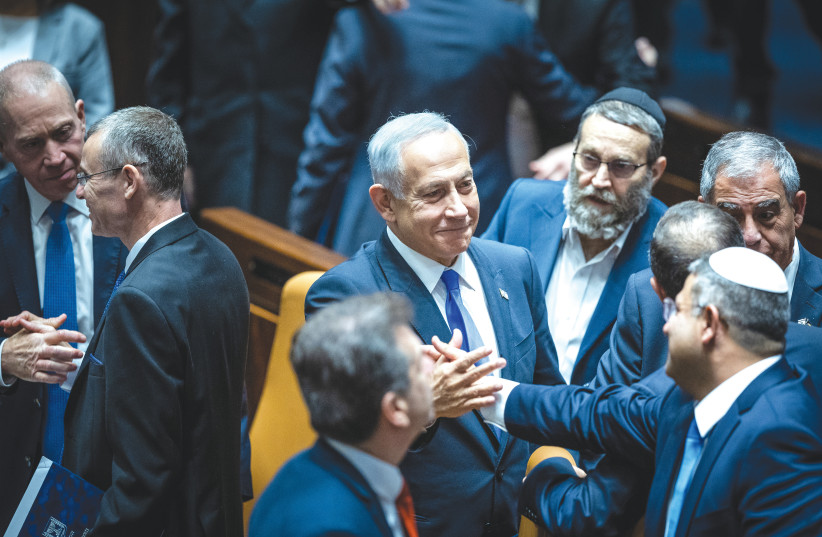The future of the proposed judicial reforms might appear in jeopardy after Attorney-General Gali Baharav-Miara ordered Prime Minister Benjamin Netanyahu not to involve himself in the furthering of the legal plan on Thursday morning over concerns of conflict of interest with his ongoing corruption trials.
At first consideration, it seems reasonable that what is currently the most momentous project of the government would be at risk without its prime minister.
However, it's debatable how involved Netanyahu has been with the reforms since the beginning.
Baharav-Miara's missive that would preclude Netanyahu from promoting the legal reform would have very little impact considering the prime minister's public support of the reforms has been sparse compared to his usual media campaigning.
It is likely no accident that Netanyahu has made few direct public statements in support of the reform.
While the reform is the issue that has preoccupied much of Israeli society since it was announced, his social media posts address other items with greater frequency. When his platforms do address the reform - when his team isn't sharing pro-reform articles to allow the authors to speak for him - they address the rhetoric of the anti-reform protests or the fact that he is filling 2022 election promises, rather than the core arguments as to why the provisions of the reform are needed.
A few weeks ago, when Israeli media reports claimed that the Attorney-General was considering proclaiming Netanyahu unfit for office over conflicts of interest, legal experts dismissed the claims. Besides the tenuous legal grounds, experts noted that it would be required to prove that Netanyahu even busied himself in the process of reforms in the first place.
Only in recent weeks has Netanyahu advertised how the reforms would positively impact the nation's economy.
While normally not shy to take the lead on his government's projects, it was Justice Minister Yariv Levin, not the prime minister who first presented the proposed reform to the world, and it has been referred to more as Levin's reforms than Netanyahu's.
Confusingly, in the last few weeks, Levin himself has largely avoided interviews to argue for his flagship project, allowing others to make the case for or against the reforms.
If not Netanyahu or Levin, who is promoting the reform?
Instead, Knesset Constitution, Law and Justice Committee chairman Simcha Rothman has been leading the reform charge, not just as a matter of necessity of the reforms to be passed as a government bill, but also to the Israeli public and abroad.
On Thursday morning, it was Rothman, not Levin or Netanyahu, who addressed international press and diplomats at the Jerusalem Center for Public Affairs. Rothman presented at the event his case for why the current legal system was broken and needed to be fixed. It was also Rothman who according to Kan had traveled to the US to do the same to American Jewish communities.
When asked on at the JCPA event if the reforms could continue after the Attorney-General had ordered against his direct or indirect involvement, Rothman indicated that it would not derail the reform process.
Further, he said, "I've spoken to many people in the government about the reform, and Netanyahu was not one of them."
Netanyahu is no fool. He or his advisers likely knew that the conflict of interest agreement coordinated by former Avichai Mandelbit in 2020 to condition his forming of government could still be in effect, or that the new attorney-general would impose one.
It is likely by design he has kept the reforms at a relative arm's length. Levin's baffling media strategy could even be a further buffer to protect Netanyahu from claims of involvement, as Levin is in the Likud, Netanyahu's party.
If anything, the Attorney-General has formalized boundaries that Netanyahu has already been careful to keep.
As indicated by Rothman's lack of worry about his project's future, there will likely be no change in the process of the reforms over the attorney-general's order to Netanyahu. If anything, it will only prove to pro-reformists that the A-G has too much power, and add steam to the reform engine.

